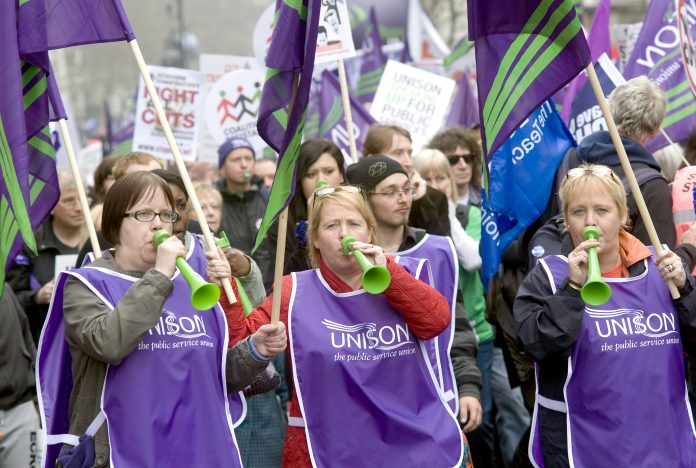Socialist Party members in Unison
In the 2021 elections to Unison’s national executive (NEC), after ten years of austerity and the previous leadership failing to defend jobs, pay and services, members voted for change. The new left leadership includes four Socialist Party members but is led by the Time For Real Change group.
The leadership of the health service group, however, remained in the hands of the right wing. Elections are now taking place with the chance to win a left leadership in the health group. Unison’s Health conference underlined the necessity of the left preparing urgently to mobilise members to fight the cost-of-living crisis, and put forward a serious strategy to fight for the NHS.
The anger was palpable. Delegate after delegate spoke about staff shortages and the enormous damage done to staff health and patient safety; about staff too scared to look at their pay because of being hit by the extra National Insurance contribution and rocketing bills, at a time when their pay was barely covering their rent and bills already.
There was frustration too at lack of progress. In more than one debate delegates said we’ve been discussing this for years: ‘I don’t want to come back year after year and be no further forward’.
The motion from the service group executive (SGE) on pay was passed, but did not go far enough in putting forward a fighting strategy. It called for a ‘substantial and restorative’ pay rise, with no specific claim, and committed to support strike action if members want it.
Socialist Party delegates spoke of the need for Unison to lead a fight on NHS pay, with a campaign to prepare for national strike action, giving confidence to members that the union will back them 100% if they vote to strike.
Right-wing members of the health SGE on the platform were not happy with this and shook their heads as Socialist Party members spoke. A delegate later complained about this and got a big round of applause from the hall.
Another theme of conference was the number of outsourced staff who got up and raised the need for the union to put their struggles centre stage. Fringe meetings included one on important and successful struggles to prevent privatisation, and to bring outsourced workers back in-house.
Very few branch motions were allowed onto the agenda. Only ten of the forty motions discussed were from branches. Important motions including one aiming to strengthen Unison’s position against the Health and Care Bill were blocked by the standing orders committee. Despite conference voting to reject that decision, it was blocked again and never made it to conference.
This is the method the right-wing leadership has employed for years and underlines the continued need for change in Unison.
- Elections to the Health Service Group Executive run from 28 April to 25 May. It is essential to try and ensure that a left majority is elected that is prepared to lead a determined battle for NHS pay, campaign to defend our NHS against Tory attacks like the Health and Care Bill, and to bring outsourced staff back in-house.
- Socialist Party members Adrian O’Malley (Yorkshire), John Malcolm (Northern) and Brian Loader (East Midlands) are standing, and Steve Bell (South East) has already been re-elected unopposed.








